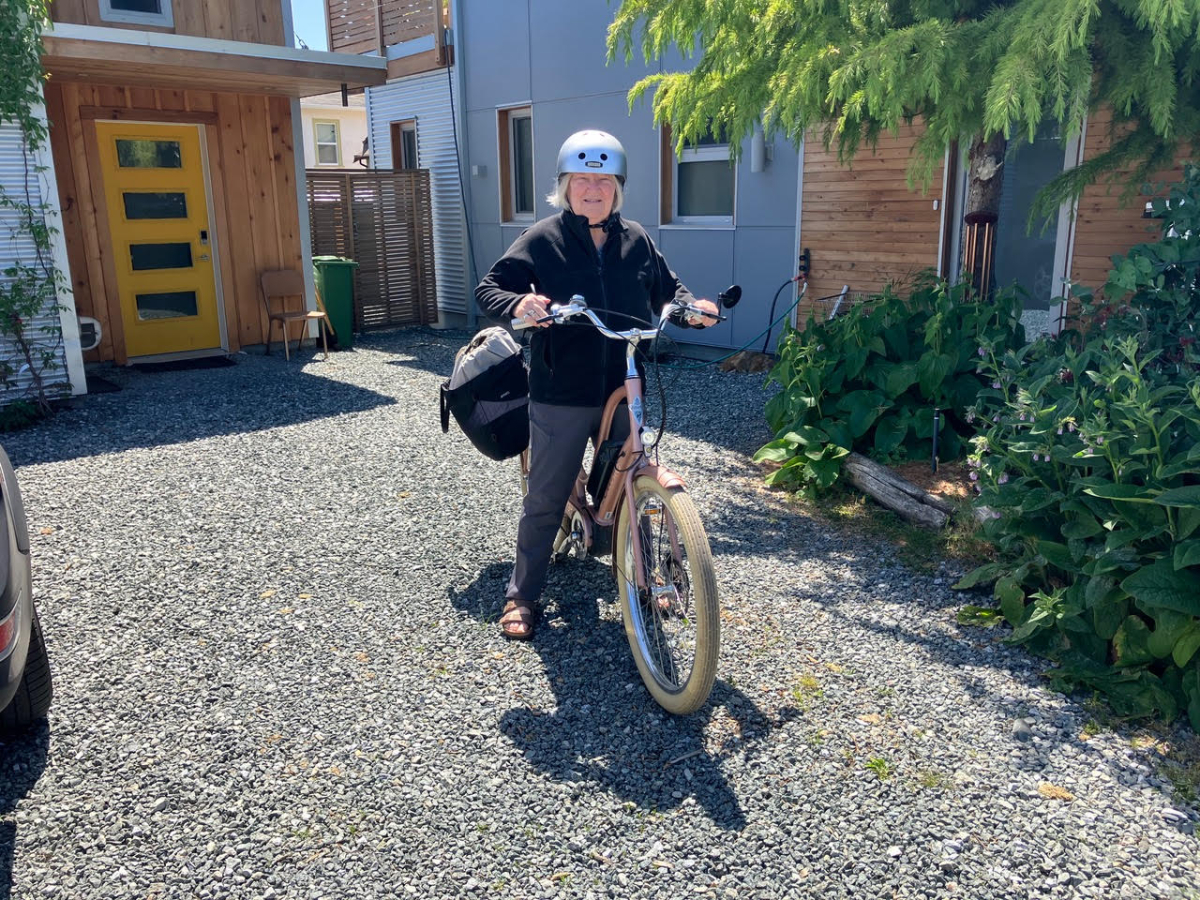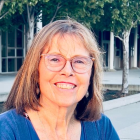Support strong Canadian climate journalism for 2025
These in-their-own-words pieces are told to Patricia Lane and co-edited with input from the interviewee for the purpose of brevity.
Rieky Stuart connects other seniors to climate action.
As a co-founder of Climate Legacy, she supports seniors to use their time, money and voices to move Canada steadily towards sustainability.

Tell us about Climate Legacy.
In 2019, a group of us came together to ask what we could do to support the call of young people like Greta Thunberg and the thousands taking to the streets to express their concern about global climate change.
We knew that seniors vote, engage politically, have pensions and sometimes investments, and often have experience making change. Many of us also have time and a strong desire to ensure the next generation benefits from the natural beauty and opportunities that propelled our generation forward.
We wanted to avoid duplicating the efforts of our own groups and that of thousands of other seniors already involved and we wanted to increase impact. Our careers informed us that to make change at the scale and pace needed, it is necessary to change both individual and organizational behaviour and that power increasingly lies in networks of networks. We decided to strengthen our collective efforts by forming such a network to allow existing groups to learn from each other and to draw in the many people our age who we know want to be involved but are not sure where to start.
Our 30 member organizations support each other to use our individual and collective voices, money and time to advance the climate conversation. We host monthly webinars and frequent workshops on topics as diverse as raising the profile of the issue in elections, increasing plant-based eating, understanding current attitudes to climate change and why and how to lobby the Canada Pension Plan. We provide resources to help people see what others are doing. We publish a newsletter with information about upcoming events and useful tips on topics like how to prepare your home for the changing climate.

What makes your work hard?
It often feels hard to know if we are making a difference and all of us feel the urgency.
I don’t have the patience I used to have when I see people seduced by messages of denial and delay. It is especially difficult when governments and decision-makers appear to be buying into that. I get frustrated that resistance to change is allowed to imperil the promise of a much better world if we do get this right.
What gives you hope?
The network is growing rapidly and there is so much support. It is heartening to hear our messages reflected in the broader public debate and know we played a part in making that happen.
Canada does have a carbon tax. It is easy to forget that this is a relatively recent win, but it is very significant.
One of my daughters has recently returned to Montreal. She tells me the bike paths are so much better than when she was there 20 years ago and they are very well-used. My other daughter works on the team rerouting Toronto’s Don River for better flood control and they are winning awards for environmental stewardship in the process. These are tangible advances that really matter.

How has your career and background prepared you for this work?
I was the executive director of Oxfam Canada for many years. I learned so much about how to make change. For example, we played a pivotal role in Canada’s decision to support the World Health Organization to make AIDS drugs widely available. In 2000, we helped shape the decision to make elementary public education a global priority with the result that by 2015, just 10 years later, almost 90 per cent of the world’s children understood basic math, reading and writing. It feels entirely appropriate that I would be applying the lessons learned to the ultimate crises of climate fairness.
I was raised by Dutch immigrant parents one generation removed from subsistence farming and was the first in my extended family to attend university. I joined Canadian University Students Overseas and worked in Thailand during the Vietnam War. After I got home and began to process the experience of watching the impacts of that war on the region, I became committed to international justice work. My experience in Asia, Africa and the Netherlands convinced me that change is possible.

What would you like to say to other older readers?
It may be difficult to decide what to do differently but business as usual imperils the future of your children and grandchildren. Small actions really do matter but they matter much more and are more satisfying if you do them with others. Whatever you did when you were working for a living, you have experience that could be put to good use. Climate Legacy might be able to help.
How about young people?
There are so many of us ready to pass the baton to you but stay in the orchestra. We want to back you up and support you.







Comments